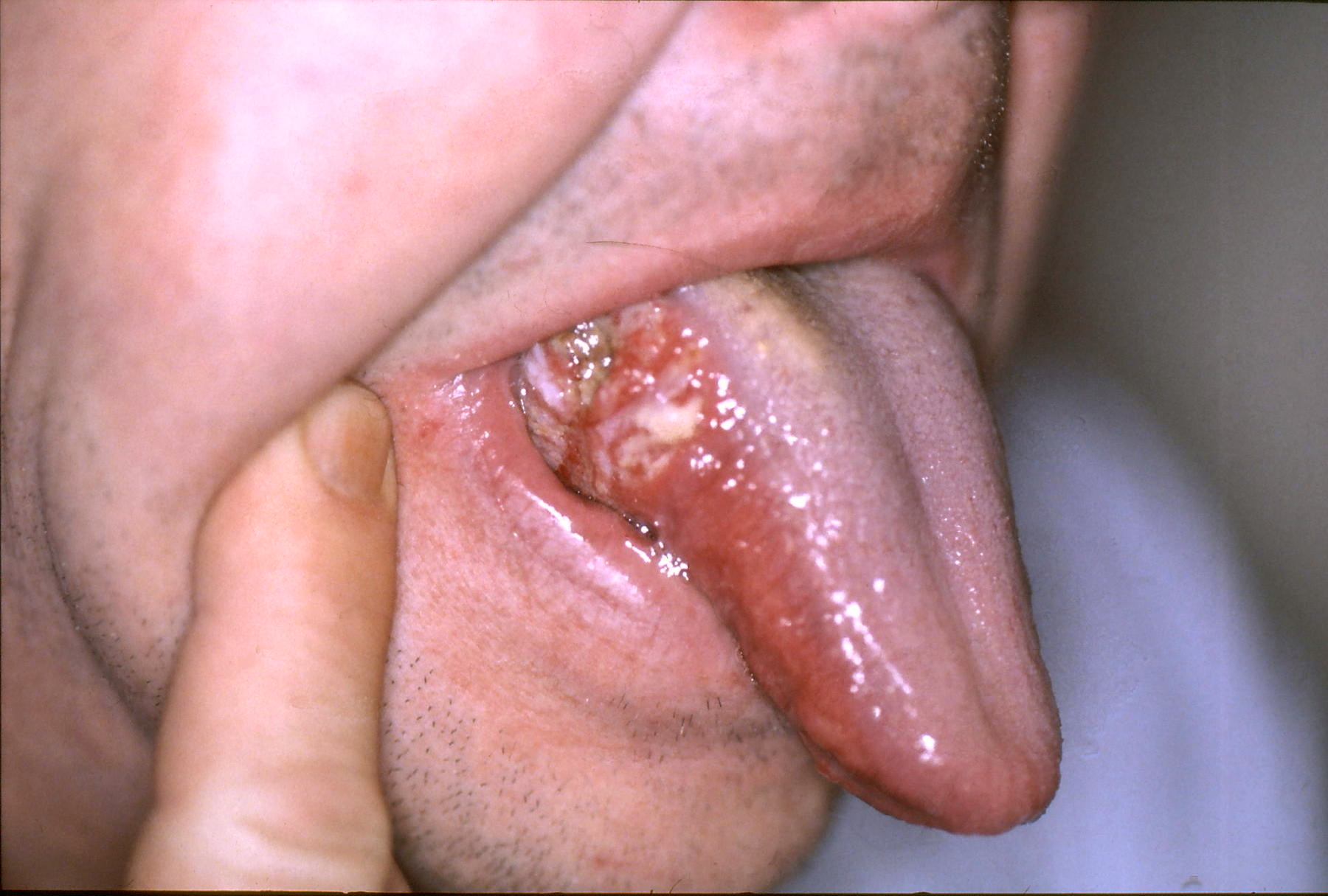Oral Cancer: Symptoms, Causes, Treatment
What are the symptoms of oral cancer?
Oral cancer refers to cancer that develops in the mouth, including the lips, tongue, gums, floor of the mouth, and the roof of the mouth. The symptoms of oral cancer can vary depending on the location and stage of the cancer, but common symptoms may include:
- Mouth Sores: Persistent sores in the mouth that do not heal within two weeks.
- Red or White Patches: Red or white patches on the gums, tongue, tonsils, or lining of the mouth.
- Lump or Thickening: A lump, thickening, or rough spot in the mouth, throat, or on the lips.
- Pain or Discomfort: Pain, tenderness, or numbness in the mouth or on the lips.
- Difficulty Swallowing: Persistent difficulty or pain when swallowing.
- Difficulty Speaking: Changes in speech, such as slurred speech or difficulty moving the tongue.
- Hoarseness: Persistent hoarseness or changes in the voice that are not due to a cold or other respiratory infection.
- Ear Pain: Pain in the ears that does not result from an ear infection.
- Unexplained Weight Loss: Weight loss that occurs without trying.
- Swollen Jaw: Swelling or lumps in the jaw, which may be a sign that the cancer has spread to the lymph nodes.
- Loose Teeth: Loose teeth or dentures that no longer fit well.
It’s important to note that these symptoms can also be caused by other conditions that are not cancerous. However, if you experience any of these symptoms for more than two weeks, it’s important to see a healthcare specialist for an evaluation. Early detection of oral cancer can greatly improve the chances of successful treatment.
What are the causes of oral cancer?
Oral cancer can occur when cells in the mouth develop changes (mutations) in their DNA. These mutations cause cells to grow uncontrollably and continue living when normal cells would die. The accumulating cells can form a tumor. With time, some tumor cells can invade nearby tissues and spread to other parts of the body.
Several factors can contribute to the development of oral cancer, including:
- Tobacco Use: Tobacco use, including smoking cigarettes, cigars, pipes, and using smokeless tobacco products, is one of the most significant risk factors for oral cancer. The risk increases with the duration and quantity of tobacco use.
- Alcohol Consumption: Heavy alcohol consumption is another major risk factor for oral cancer. The risk increases with the amount and duration of alcohol use.
- Human Papillomavirus (HPV) Infection: Infection with certain strains of HPV, particularly HPV-16 and HPV-18, is a risk factor for oral cancer. HPV is a sexually transmitted infection.
- Sun Exposure: Prolonged exposure to sunlight can increase the risk of lip cancer.
- Poor Oral Hygiene: Poor oral hygiene and the presence of gum disease (periodontal disease) have been associated with an increased risk of oral cancer.
- Poor Nutrition: A diet low in fruits and vegetables may increase the risk of oral cancer.
- Age: The risk of oral cancer increases with age, with most cases diagnosed in people over the age of 55.
- Gender: Men are at a higher risk of developing oral cancer than women.
- Genetics: Some inherited genetic mutations may increase the risk of developing oral cancer.
- Immune System Suppression: People with weakened immune systems, such as those with HIV/AIDS or those who have undergone organ transplantation, are at an increased risk of oral cancer.
It’s important to note that not everyone with risk factors develops oral cancer, and some people with oral cancer may not have any known risk factors. Regular dental check-ups and screenings can help detect oral cancer early, when it is most treatable.
What is the treatment for oral cancer?
The treatment for oral cancer depends on several factors, including the stage of the cancer, its location, and the overall health of the patient. Treatment may involve one or more of the following approaches:
- Surgery: Surgery is often used to remove the cancerous tumor and a margin of healthy tissue around it. In some cases, surgery may also involve removing nearby lymph nodes if the cancer has spread.
- Radiation Therapy: Radiation therapy uses high-energy beams, such as X-rays or protons, to kill cancer cells. It may be used alone or in combination with surgery or chemotherapy.
- Chemotherapy: Chemotherapy uses drugs to kill cancer cells. It may be used alone or in combination with surgery and/or radiation therapy.
- Targeted Therapy: Targeted therapy uses drugs that specifically target cancer cells while minimizing damage to normal cells. These drugs may be used in combination with other treatments.
- Immunotherapy: Immunotherapy works by boosting the body’s immune system to help it recognize and attack cancer cells. It may be used in some cases of oral cancer.
- Reconstructive Surgery: After removal of a tumor, reconstructive surgery may be performed to restore the appearance and function of the mouth and jaw.
- Nutritional Support: Good nutrition is important during treatment for oral cancer. Nutritional support, such as a feeding tube or dietary counseling, may be necessary to maintain adequate nutrition.
- Speech and Swallowing Therapy: Speech and swallowing therapy may be recommended to help patients regain speech and swallowing function after treatment.
The choice of treatment depends on several factors, including the stage and location of the cancer, the patient’s overall health and preferences, and the expertise of the healthcare team. Treatment for oral cancer can be complex, and a multidisciplinary approach involving a team of healthcare providers, including surgeons, oncologists, radiation oncologists, and speech therapists, is often necessary. Early detection and treatment of oral cancer can improve the chances of successful treatment and recovery.




